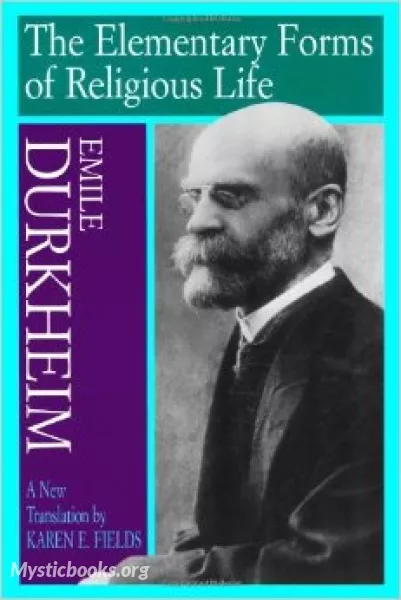
The Elementary Forms of the Religious Life
'The Elementary Forms of the Religious Life' Summary
"The Elementary Forms of the Religious Life" by Émile Durkheim is a seminal work in the field of sociology that explores the fundamental nature and functions of religion in society. Durkheim analyzes the social and cultural dimensions of religious practices, focusing on the concept of "totemism" as a representative form of religious expression. Through his study, he aims to uncover the underlying principles that govern religious life and its role in shaping social cohesion.
The book does not revolve around specific characters or a plotline; rather, it presents a comprehensive analysis of the collective rituals and beliefs found in religious systems. Durkheim argues that religion is a social phenomenon, deeply rooted in the shared experiences and values of a community. He investigates the concept of totemism, which he defines as the worship of symbols representing the sacred collective conscience of a group. By studying the rituals, beliefs, and symbols associated with totemism, Durkheim seeks to uncover the fundamental principles underlying all religious practices.
The central conflict or problem that drives the narrative is Durkheim's attempt to reconcile the individual and the collective dimensions of religious experience. He explores how religious rituals and beliefs serve to bind individuals together, promoting social integration and solidarity. Durkheim also examines the ways in which religion contributes to the formation of social order, moral norms, and the collective consciousness of a society.
Durkheim's writing style is scholarly, rigorous, and analytical. He presents his arguments based on extensive research, drawing on ethnographic studies and comparative analysis of religious practices across different cultures and historical periods. Durkheim's tone is objective and academic, reflecting his commitment to scientific inquiry and the pursuit of sociological knowledge.
"The Elementary Forms of the Religious Life" is situated within the historical context of late 19th-century sociology, a period characterized by the emergence of the discipline as a scientific field. Durkheim's work represents a foundational contribution to the study of sociology of religion, providing a theoretical framework for understanding the social functions and significance of religious phenomena.
In summary, "The Elementary Forms of the Religious Life" is a groundbreaking sociological study that explores the nature of religion and its role in shaping social cohesion. Émile Durkheim examines the concept of totemism as a representative form of religious expression and analyzes the collective rituals, beliefs, and symbols associated with it. Through his work, Durkheim seeks to understand the fundamental principles underlying all religious practices and their contribution to social integration and the collective consciousness of a society. His writing style is scholarly and objective, reflecting his commitment to scientific inquiry.
Book Details
Language
EnglishOriginal Language
FrenchPublished In
1912Genre/Category
Tags/Keywords
Authors
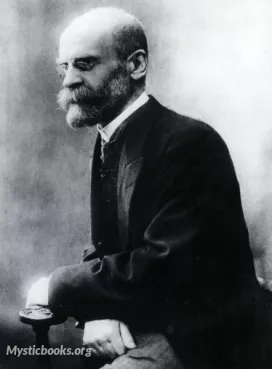
Émile Durkheim
France
Émile Durkheim, a prominent figure in the field of sociology, left an indelible mark on the discipline through his groundbreaking theories and influential works. Born on April 15, 1858, in Épinal, Fra...
Books by Émile DurkheimDownload eBooks
Listen/Download Audiobook
- Select Speed
Related books
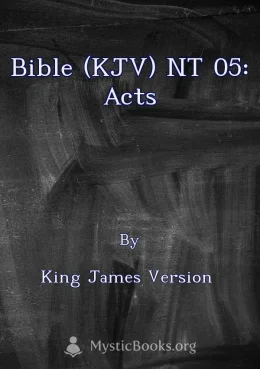
Bible (KJV) NT 05: Acts by King James Version
The Book of Acts, part of the New Testament in the King James Version, recounts the story of the early Christian church after Jesus' ascension. It chr...

Book of Divine Consolation of the Blessed Angela of Foligno by Blessed Angela of Foligno
The *Book of Divine Consolation* is a collection of writings by Blessed Angela of Foligno, a 13th-century Italian mystic. It details her spiritual jou...

Jesus Himself by Andrew Murray
Is it possible to be familiar with Jesus, to know the Bible, to be involved in church life, and yet not really know Jesus at all well? Andrew Murray,...

聖經 (和合本) 新約:使徒行傳 (Acts) by Chinese Union Version
The Chinese Union Version (CUV) is the most widely used Chinese translation of the Bible among Chinese Protestants. It is a collaborative effort by mi...

Bible (DRV) Apocrypha/Deuterocanon: Book of Judith by Douay-Rheims Version
The story revolves around Judith, a daring and beautiful widow, who is upset with her Jewish countrymen for being unwilling to engage their foreign co...

The Counter-Reformation by Adolphus Ward
It explores the period of Catholic resurgence in response to the Protestant Reformation in the 16th and 17th centuries. First published in 1910, the b...

Fisherman and his Friends: A Series of Revival Sermons by Louis Albert Banks
The sermons in this collection were preached in Hanson Place Methodist Episcopal Church during the month of January, 1896. Afterwards, they were print...
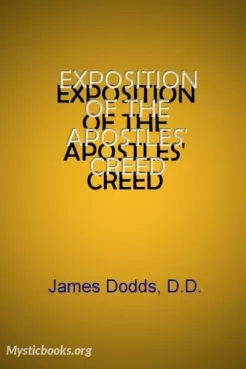
Exposition of the Apostles' Creed by James Dodds
What is the Apostles' Creed, and why does it matter? In his book Exposition of the Apostles' Creed, James Dodds provides a clear and concise explanat...

Eighty Seven by Pansy (Isabella Macdonald Alden)
Step into the world of Chautauqua, a Victorian summer retreat where faith, friendship, and love blossom in Pansy's classic novel, Eighty-Seven. In th...
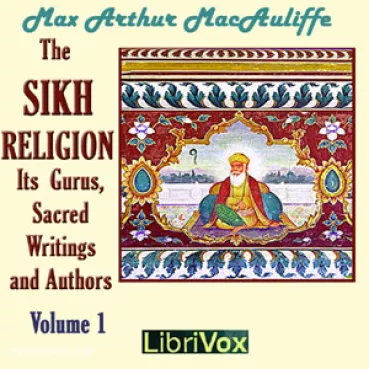
The Sikh Religion: Its Gurus, Sacred Writings and Authors, Volume 1 by Max Arthur Macauliffe
A fascinating and comprehensive introduction to the Sikh religion The Sikh religion is a relatively young religion, but it has a rich and complex his...
Reviews for The Elementary Forms of the Religious Life
No reviews posted or approved, yet...